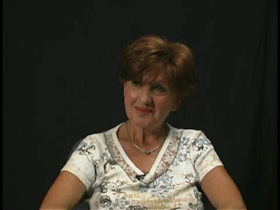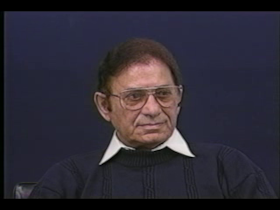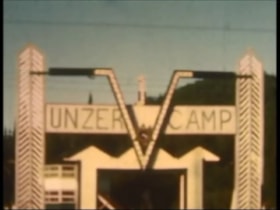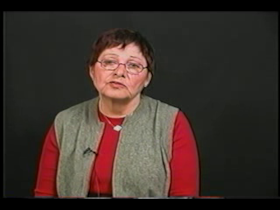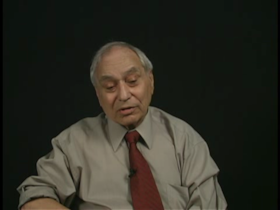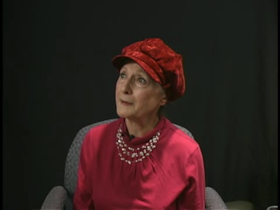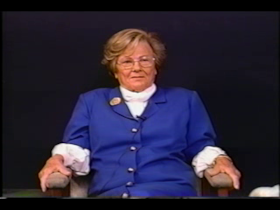Narrow Results By
Collection
- "Afterword" Collection 1
- 39th Henry Hank Torontow Scouts fonds 136
- =Jewish Community Centre of Ottawa fonds 3
- =Ottawa Women s ORT fonds 2
- A COAT OF MANY COLOURS, CANADIAN BROADCASTING CORPORATION (CBC) - Videotaped Interviews. 1
- A. L. Florence fonds 6
- A. Levin fonds 1
- A. Nissenson Fonds 1
- A. Rhinewine Fonds 1
- ABBEY, Monroe. 1
- ABEL, Solomon = immigration and family documents. 1
- ABELLA, Irving. 1
Place
- Amsterdam, Netherlands, Europe 1
- Bedzin, Poland, Europe 1
- Berlin - Charlottenburg, Germany, Europe 1
- Berlin-Charlottenburg, Germany, Europe 1
- Berlin, Germany, Europe 5
- Brno, Czech Republic (Czechoslovakia), Europe 1
- Brussels, Belgium, Europe 1
- Budapest, Hungary, Europe 2
- Crimmitschau, Germany, Europe 1
- Gera, Germany, Europe 1
- Hochheim am Main, Germany, Europe 1
- Iasi, Romania, Europe 1
Brinberg, Georgette - Oral History of a Holocaust Survivor
https://www.cjhn.ca/link/cjhn60315
- Collection
- WITNESS TO HISTORY COLLECTION (MHMC-02)
- Description Level
- Item
- Material Type
- moving images
- Physical Description
- 01:32:00
- Collection
- WITNESS TO HISTORY COLLECTION (MHMC-02)
- Description Level
- Item
- Material Type
- moving images
- Physical Description
- 01:32:00
- Language
- English; French
- Notes
- Georgette Brinberg (née Tepicht) was born on June 10, 1938 in the mining town of Villerupt in northern France. In the 1940s, when the town was attacked by Germany, her mother, father and older sister fled to Paris. Although she was young, she remembers that her father in 1940 was rounded-up and sent to a working camp, and eventually to Auschwitz. In July 1942, she, her sister and mother were rounded up and sent off to the Vélodrome d’Hiver where she stayed for a week until she was split up from her mother and destined to be sent to Auschwitz. Fortunately, Georgette and her sister were able to flee the Vel d’Hiv and were sent to Morée. She does not remember how she ended up there, but she does know that she was in hiding with her sister, and that there was a constant fear of being captured. She had to learn all the Catholic rites in order to pass off as a Catholic girl. In 1944, about the time of the liberation of France, she once more fled Morée and returned to Paris after jumping onto an American truck. Once she arrived in Paris with her sister, they sought out their grandmother who was still in hiding. All three stayed in hiding until the end of the war, and eventually moved to Israel in 1948. In Israel, she joined the Kibbutz – a collective community traditionally based on agriculture. She stayed there, learning Yiddish, until the 1950s. She eventually decided to move to Canada where her sister lived with her husband. In 1955, she finally arrived in Montreal where she went to business school and worked in the Quebec Order of Chartered Accountants. She married in 1957 and had three kids. In subsequent years, she researched the whereabouts of her family and tried to find a trace of those that helped her. She even returned to Paris to learn more about her past and her family legacy. She feels that her story should be told for future generations to remember, in her words: “if I can tell my grandchildren, then why not everyone [else]?”
- Accession No.
- WTH-462
- Name Access
- Brinberg, Georgette
- Places
- Villerupt, France, Europe
- Archival / Genealogical
- Archival Descriptions
- Repository
- Montreal Holocaust Museum
Images
Calderon, Leon - Oral History of a Holocaust Survivor
https://www.cjhn.ca/link/cjhn60302
- Collection
- WITNESS TO HISTORY COLLECTION (MHMC-02)
- Description Level
- Item
- Material Type
- moving images
- Physical Description
- 02:02:03
- Collection
- WITNESS TO HISTORY COLLECTION (MHMC-02)
- Description Level
- Item
- Material Type
- moving images
- Physical Description
- 02:02:03
- Language
- English
- Notes
- Leon Calderon was born in 1926 in Salonika, Greece, to a family of Yugoslavian origins. He had four siblings who, along with his parents, perished in Auschwitz in 1943, except for one brother who died in the Warsaw ghetto. After the war broke out in Greece, he lived in Salonika in the ghetto until April 1943, when he was deported to Auschwitz-Birkenau. He was there for about six months. In October 1943, he was transferred to the Warsaw ghetto, where he had to clean up and collect bricks after the uprising. In June 1944 the Russians were approaching, and after a five-day death march, he was transferred by train to Dachau, where he remained for a week. Then he was transferred to the Mildorf labor camp in Germany, where he worked on the construction of a tunnel until April 1945. With the American Army approaching, they were put on a train, which was also bombed, and were finally liberated on April 30, 1945 by the Americans. Leon stayed for a week in a DP camp near Munich, then for a month in the Landsberg DP camp. He returned to Salonika until the Greek civil war began in 1949. He moved to Israel, returning to Salonika in 1953 to obtain visas for Canada. In August 1955, he came to Canada by boat. He got married and he had two daughters. He worked as a salesman and manager of a store, and owned his own company until 1975.
- Accession No.
- WTH-161
- Name Access
- Calderon, Leon
- Places
- Salonika, Greece, Europe
- Archival / Genealogical
- Archival Descriptions
- Repository
- Montreal Holocaust Museum
Images
Camp Dan
https://www.cjhn.ca/link/cjhn78148
- Collection
- Camp Kindervelt/Camp Unzer Collection
- Description Level
- Fonds
- Material Type
- moving images
- Physical Description
- 1 film reel : col.
- Fonds No.
- 1357; 1357_003
- Date
- 1966
- Collection
- Camp Kindervelt/Camp Unzer Collection
- Description Level
- Fonds
- Material Type
- moving images
- Physical Description
- 1 film reel : col.
- Date
- 1966
- Fonds No.
- 1357
- Item No.
- 1357_003
- Storage Location
- 8-5A
- Notes
- Film capturing daily activities at Camp Dan in 1966.
- Archival / Genealogical
- Archival Descriptions
- Repository
- Jewish Public Library Archives
Camp Kindervelt
https://www.cjhn.ca/link/cjhn78146
- Collection
- Camp Kindervelt/Camp Unzer Collection
- Description Level
- Fonds
- Material Type
- moving images
- Physical Description
- 1 film reel : col.
- Fonds No.
- 1357; 1357_001
- Date
- 1949-1954
- Collection
- Camp Kindervelt/Camp Unzer Collection
- Description Level
- Fonds
- Material Type
- moving images
- Physical Description
- 1 film reel : col.
- Date
- 1949-1954
- Fonds No.
- 1357
- Item No.
- 1357_001
- Storage Location
- 8-5A
- Notes
- Film capturing daily activities at Camp Kindervelt and Camp Unzer, between 1949-1954.
- Archival / Genealogical
- Archival Descriptions
- Repository
- Jewish Public Library Archives
Images
YouTube
Camp Kindervelt
https://www.youtube.com/embed/VeTryjsBiDUCamp Kindervelt
https://www.cjhn.ca/link/cjhn78147
- Collection
- Camp Kindervelt/Camp Unzer Collection
- Description Level
- Fonds
- Material Type
- moving images
- Physical Description
- 1 film reel : col.
- Fonds No.
- 1357; 1357_002
- Date
- 1960
- Collection
- Camp Kindervelt/Camp Unzer Collection
- Description Level
- Fonds
- Material Type
- moving images
- Physical Description
- 1 film reel : col.
- Date
- 1960
- Fonds No.
- 1357
- Item No.
- 1357_002
- Storage Location
- 8-5A
- Notes
- Film capturing daily activities at Camp Kindervelt in 1960.
- Archival / Genealogical
- Archival Descriptions
- Repository
- Jewish Public Library Archives
Camp Kindervelt/Camp Unzer Collection
https://www.cjhn.ca/link/cjhn78145
- Collection
- Camp Kindervelt/Camp Unzer Collection
- Description Level
- Fonds
- Material Type
- moving images
- Physical Description
- 3 film reels : col.
- Fonds No.
- 1357
- Date
- 1949-1966
- Scope and Content
- Consists of three film reels depicting daily activities and events at Camp Kindervelt and Camp Unzer, later Camp Dan.
- Collection
- Camp Kindervelt/Camp Unzer Collection
- Description Level
- Fonds
- Material Type
- moving images
- Physical Description
- 3 film reels : col.
- Scope and Content
- Consists of three film reels depicting daily activities and events at Camp Kindervelt and Camp Unzer, later Camp Dan.
- Date
- 1949-1966
- Fonds No.
- 1357
- Storage Location
- 8-5A
- Archival / Genealogical
- Archival Descriptions
- Repository
- Jewish Public Library Archives
Cieply, Isak - Oral History of a Holocaust Survivor
https://www.cjhn.ca/link/cjhn67767
- Collection
- WITNESS TO HISTORY COLLECTION (MHMC-02)
- Description Level
- Item
- Material Type
- moving images
- Physical Description
- 02:26:32
- Collection
- WITNESS TO HISTORY COLLECTION (MHMC-02)
- Description Level
- Item
- Material Type
- moving images
- Physical Description
- 02:26:32
- Language
- English
- Notes
- Isak Cieply was born on February 1, 1924 in Starachowice, Poland. He had five siblings and the family was very poor. In the fall of 1939, soon after the German invasion, the Jews of Starachowice were ordered to move into the ghetto. Isak was selected to work in a steel factory and his work pass protected him from round-ups. At the beginning of 1943 he was sent to the Bugaj camp to work in a supplies warehouse. In the summer of 1944 the camp was liquidated after rumours of the approach of the Soviet army had spread. The prisoners were taken to Auschwitz. Isak was sent to work in an electric supplies warehouse in Buna/Auschwitz III. There he met a German soldier who proposed a deal that Isak accepted. Isak was to supply this soldier with electric materials and, in return, he would get a loaf of bread every day. In January 1945 Isak was sent on a death march to the Flossenbürg concentration camp. Sometime later he was sent on another death march but succeeded to escape with some fellow prisoners. They eventually met American soldiers. After liberation Isak worked as the chief supplier of the Pfarrkirchen and Eggenfelden DP camps. He immigrated to Canada in 1948 and married the late Regina Cieply who was also a survivor. They had four children and several grandchildren, among them Jamie Benizri.
- Accession No.
- WTH-213
- Name Access
- Cieply, Isak
- Archival / Genealogical
- Archival Descriptions
- Repository
- Montreal Holocaust Museum
Images
YouTube
Cieply, Isak - Oral History of a Holocaust Survivor
https://www.youtube.com/embed/eIbnIGm8Rg8Cohen, Matla - Oral History of a Holocaust Survivor
https://www.cjhn.ca/link/cjhn60312
- Collection
- WITNESS TO HISTORY COLLECTION (MHMC-02)
- Description Level
- Item
- Material Type
- moving images
- Physical Description
- 01:28:09
- Collection
- WITNESS TO HISTORY COLLECTION (MHMC-02)
- Description Level
- Item
- Material Type
- moving images
- Physical Description
- 01:28:09
- Language
- English
- Notes
- Matla Cohen was born November 15th, 1934 in Mezrich, Poland. She comes from a family of six that include two sisters and one twin brother. The pre-war period is somewhat unfamiliar to her due to her very young age, but her first real awareness of the war was when she and her family had to hide out in the garden after areas around her home were bombarded. In 1939-40, she and her family had been relocated to Vitebsk, Belarus. Her parents worked in a factory and she was in a nursery with her brother. Once more, they were forcefully relocated to a labour camp in Siberia. Her parents worked early and returned at night, while Matla was placed in a barrack and became caretaker of her siblings. She recalls her time there as being: “very difficult”. Ultimately, her family escaped the barrack as her father bribed a commandant with the prospect of a tailored suit. They finally got to an area in the Caucasus Mountains where they lived until the war ended. After the war, they returned back to Poland. They lived there for a month where the Madrichim approached their parents in hopes of sending Anne to Israel. She was separated from her family and sent to a DP camp in Berlin, awaiting the transport to Israel. In the end, that never took place as she jumped from camp to camp until a French Canadian woman in one of them suggested that she move to Montreal; a suggestion she followed in 1948. In Canada, she was adopted by a local family in Ste. Agathe and lived there until she attended college at the age of 18 in Montreal. She would visit her family in Ste. Agathe most weekends, and that is where she met her first husband; a marriage which lasted ten years. A few years later she met her second husband, Benjamin, to whom she is still married. She has five children.
- Accession No.
- WTH-448
- Name Access
- Cohen, Matla
- Places
- Mezrich, Poland, Europe
- Archival / Genealogical
- Archival Descriptions
- Repository
- Montreal Holocaust Museum
Images
Dawang, Elie - Oral History of a Holocaust Survivor
https://www.cjhn.ca/link/cjhn60321
- Collection
- WITNESS TO HISTORY COLLECTION (MHMC-02)
- Description Level
- Item
- Material Type
- moving images
- Physical Description
- 03:55:00
- Collection
- WITNESS TO HISTORY COLLECTION (MHMC-02)
- Description Level
- Item
- Material Type
- moving images
- Physical Description
- 03:55:00
- Language
- French
- Notes
- Elie Dawang was born on January 4, 1934 in Paris, France, to Lithuanian parents. Elie has good memories of his early childhood, being raised by loving and well-off parents. In May 1940, the Dawangs left Paris for a small village near the Spanish border. Despite the great danger, they went back to Paris to liquidate the business of Feivish, Elie’s father. The three of them were arrested in September 1941 and while Feivish managed to get Elie out of prison, he couldn’t do anything to save himself or his wife. They were both sentenced and sent to jail for possessing false papers. They both ended up in Auschwitz, but Elie’s mother was gassed upon arrival whereas Feivish survived the war. Meanwhile, Elie was being taken care of by a Jewish woman. Elie and his caretaker almost got arrested during the roundup of Vel d’Hiv but managed to hide. After a few months hiding in the suburbs of Paris, they moved to the country where they stayed until liberation. When Paris was liberated, they moved back there and Elie returned to school. He reunited with his father in May 1945. They moved to Canada in 1951 with Elie’s stepmother. Elie describes the process to immigrate, his first impressions of Montreal and Canada and his involvement in Holocaust education.
- Accession No.
- WTH-482
- Name Access
- Dawang, Elie
- Places
- Paris, France, Europe
- Archival / Genealogical
- Archival Descriptions
- Repository
- Montreal Holocaust Museum
Images
YouTube
Dawang, Elie - Oral History of a Holocaust Survivor
https://www.youtube.com/embed/f95UEOppbHEDawidovicz, David - Oral History of a Holocaust Survivor
https://www.cjhn.ca/link/cjhn60325
- Collection
- WITNESS TO HISTORY COLLECTION (MHMC-02)
- Description Level
- Item
- Material Type
- moving images
- Physical Description
- 02:48:00
- Collection
- WITNESS TO HISTORY COLLECTION (MHMC-02)
- Description Level
- Item
- Material Type
- moving images
- Physical Description
- 02:48:00
- Language
- French
- Notes
- David Dawidovicz was born on July 17, 1924 in Lodz, Poland. Soon after, his family moved to Tel-Aviv, Israel, where they stayed until 1931. At that point, they moved to Paris because of endemic poverty in Tel-Aviv. After four years in France, David, his mother and two of his sisters were expelled from France because they were illegal immigrants, unlike David’s father. David remembers the train journey through Germany, seeing lots of swastikas on buildings and on uniforms. He and his relatives spent six months in Lodz. There, David realized that Jews in Poland weren’t as emancipated as Jews in France. Back to France, David attended school until the war began. In 1941 and 1942, he witnessed several roundups. During the Vel d’Hiv roundup of July 1942, he hid in a small apartment with other people. They were able to hide thanks to French policemen who used to warn Jews. David hid for several weeks. He was eventually arrested in August 1942 by French policemen who took him to the offices of the UJF (Union des Juifs français). This organization gave money to the French police to send Jews to work in the Ardennes (a French region) instead of deporting them to Poland. David worked there until January 1944, at which point he decided to escape and join the resistance. He partook in the liberation of Paris. After the war, David took part in a program to de-Nazify the German youth. He lives in Paris to this day.
- Accession No.
- WTH-534
- Name Access
- Dawidovicz, David
- Places
- Lodz, Poland, Europe
- Archival / Genealogical
- Archival Descriptions
- Repository
- Montreal Holocaust Museum
Images
Dlusy, Jon - Oral History of a Holocaust Survivor
https://www.cjhn.ca/link/cjhn60314
- Collection
- WITNESS TO HISTORY COLLECTION (MHMC-02)
- Description Level
- Item
- Material Type
- moving images
- Physical Description
- 01:50:00
- Collection
- WITNESS TO HISTORY COLLECTION (MHMC-02)
- Description Level
- Item
- Material Type
- moving images
- Physical Description
- 01:50:00
- Language
- English
- Notes
- Jon Dlusy was born Yonah Dlusniewski on October 29, 1927 in Berlin, Germany, to Polish parents. They had moved to Germany in 1919, living in the Charlottenburg area of Berlin. There, his father had established a clothing manufacturing business. Jon had an older brother who later worked for the Canadian Air Force and got killed in Scotland in 1944 returning from an operation. In May 1938, Jon’s father decided to leave Germany because of the increasing antisemitism. They obtained visas for Belgium and fled Germany, leaving everything behind. They stayed in Antwerp for about four months, waiting for the Canadian visas. Once they received them, they immigrated to Montreal via Liverpool and Halifax. They already had family in Canada. They lived in Outremont. Jon is now retired. His mother lived until 101 years old.
- Accession No.
- WTH-455
- Name Access
- Dlusy, Jon
- Places
- Berlin, Germany, Europe
- Archival / Genealogical
- Archival Descriptions
- Repository
- Montreal Holocaust Museum
Images
Eliasewitz, Fruma - Oral History of a Holocaust Survivor
https://www.cjhn.ca/link/cjhn60313
- Collection
- WITNESS TO HISTORY COLLECTION (MHMC-02)
- Description Level
- Item
- Material Type
- moving images
- Physical Description
- 01:56:00
- Collection
- WITNESS TO HISTORY COLLECTION (MHMC-02)
- Description Level
- Item
- Material Type
- moving images
- Physical Description
- 01:56:00
- Language
- English
- Notes
- Fruma Eliasewitz was born on January 1, 1922 in Skaudvile, Lithuania, to a religious family. She had five sisters and one brother. At the age of 15, she moved to Klaipeda (Memel) to work in a cigarette factory for two years. She got married in 1939. When the German army invaded Lithuania in 1939, Fruma moved to Tuarage and then to Kuanas where she remained until June 1941, working again in a cigarette factory. She spent a year and a half in the Slobodka ghetto. In 1942, she was transferred to Riga, Latvia, where she worked in the airport to supply building material. With the Russians approaching, she was deported to Dachau where she worked in the kitchen until April 1945. She was forced on a death march for almost a week until she was liberated by the American army in April 1945 near Wolfratshausen, Germany. She spent a short period in the Feldafing DP camp in Germany. Between 1945 and 1949 she lived with her husband in Munich, working in the kitchen for the Jewish committee and raising their first son. In 1949, the family moved to Israel where she had her second son. The following year, she had a daughter. In March 1953 she immigrated to Canada via Paris and Halifax. She worked various jobs - washing floors, in a stocking factory, and Cantor’s bakery in Côte St Luc. Two of her sisters live in Israel and four in Montreal.
- Accession No.
- WTH-453
- Name Access
- Eliasewitz, Fruma
- Places
- Skaudvile, Lithuania, Europe
- Archival / Genealogical
- Archival Descriptions
- Repository
- Montreal Holocaust Museum
Images
Engelhard, Sarah - Oral History of a Holocaust Survivor
https://www.cjhn.ca/link/cjhn60316
- Collection
- WITNESS TO HISTORY COLLECTION (MHMC-02)
- Description Level
- Item
- Material Type
- moving images
- Physical Description
- 04:49:00
- Collection
- WITNESS TO HISTORY COLLECTION (MHMC-02)
- Description Level
- Item
- Material Type
- moving images
- Physical Description
- 04:49:00
- Language
- English
- Notes
- Sarah Engelhard was born on July 10, 1932 in Alsace-Lorraine, France. Her childhood was spent in Toulouse, where she lived with her parents and her younger brother Jack. With an increasing number of Jews in Toulouse being taken by the Nazis, her family escaped to Spain when she around nine years old. To do so they obtained false papers and hired guides to take them over the Pyrenees. They lived in Spain for almost two years, finally immigrating to Canada on the first day of Passover in April 1944. Though she picked up English quickly, she didn’t enjoy her first years in Canada. High school was hard for her, and she dropped out at age 15 to help her father sell his handbags. Though she managed to do her part well, he did not, and the business fell through. She found a job in the music section at Eaton’s department store. When she was 18 she left home and became engaged to a man she had known in high school, Avi Boxer. That engagement fell through and, after obtaining her degree from St. George’s University, she married a man twenty years her senior named Harry. They had three children. She moved with Harry to Philadelphia where he was working as an engineer. There, she began to write French love songs and perform in dinner clubs as a singer as well as audition for plays. She also taught French, eventually getting a television program for teaching French. She and Harry divorced in 1972. A year or two later she returned to Montreal after having visited Europe for the first time since she left. She reunited with Avi, and though the relationship was sour they had a child, Asa. In 1993 she and Asa left for Israel, where she lived for nine years. She returned to Montreal in 2002 and has since written a book about her life.
- Accession No.
- WTH-470
- Name Access
- Engelhard, Sarah
- Places
- Saarbrucken, Germany, Europe
- Archival / Genealogical
- Archival Descriptions
- Repository
- Montreal Holocaust Museum
Images
Engelhard, Sarah - Oral History of a Holocaust Survivor
https://www.cjhn.ca/link/cjhn60326
- Collection
- WITNESS TO HISTORY COLLECTION (MHMC-02)
- Description Level
- Item
- Material Type
- moving images
- Physical Description
- 04:49:00
- Collection
- WITNESS TO HISTORY COLLECTION (MHMC-02)
- Description Level
- Item
- Material Type
- moving images
- Physical Description
- 04:49:00
- Language
- French
- Notes
- Sarah Engelhard was born on July 10, 1932 in Alsace-Lorraine, France. Her childhood was spent in Toulouse, where she lived with her parents and her younger brother Jack. With an increasing number of Jews in Toulouse being taken by the Nazis, her family escaped to Spain when she around nine years old. To do so they obtained false papers and hired guides to take them over the Pyrenees. They lived in Spain for almost two years, finally immigrating to Canada on the first day of Passover in April 1944. Though she picked up English quickly, she didn’t enjoy her first years in Canada. High school was hard for her, and she dropped out at age 15 to help her father sell his handbags. Though she managed to do her part well, he did not, and the business fell through. She found a job in the music section at Eaton’s department store. When she was 18 she left home and became engaged to a man she had known in high school, Avi Boxer. That engagement fell through and, after obtaining her degree from St. George’s University, she married a man twenty years her senior named Harry. They had three children. She moved with Harry to Philadelphia where he was working as an engineer. There, she began to write French love songs and perform in dinner clubs as a singer as well as audition for plays. She also taught French, eventually getting a television program for teaching French. She and Harry divorced in 1972. A year or two later she returned to Montreal after having visited Europe for the first time since she left. She reunited with Avi, and though the relationship was sour they had a child, Asa. In 1993 she and Asa left for Israel, where she lived for nine years. She returned to Montreal in 2002 and has since written a book about her life.
- Accession No.
- WTH-537
- Name Access
- Engelhard, Sarah
- Places
- Saarbrucken, Germany, Europe
- Archival / Genealogical
- Archival Descriptions
- Repository
- Montreal Holocaust Museum
Images
Exiner, Robert - Oral History of a Holocaust Survivor
https://www.cjhn.ca/link/cjhn60307
- Collection
- WITNESS TO HISTORY COLLECTION (MHMC-02)
- Description Level
- Item
- Material Type
- moving images
- Physical Description
- 01:37:33
- Collection
- WITNESS TO HISTORY COLLECTION (MHMC-02)
- Description Level
- Item
- Material Type
- moving images
- Physical Description
- 01:37:33
- Language
- English
- Notes
- Robert Exiner was born on March 2, 1916 in Berlin, Germany. His father was in the clothing business and his mother helped him. They were a middle-class family and lived well. Robert was an only child, though he had an older brother who died before he was born. His family was not strictly religious; however, he had had a bar mitzvah. Robert identified as a German who happened to be Jewish. He attended a private preschool for three years before moving to a French gymnasium that focused on Liberal Arts. He graduated when he was 18, in 1934. After graduating he could not go to university since he was Jewish. A textile college accepted him, not for the regular two-year course but for the six-month course. He did four. He was not ready to leave Germany. During this time his father died. Robert was a member of the Iron Front, a Nationalist organization. They were dissolved, but carried on illegally for a year in Upper Silesia before being caught. He spent a night in an SS cell after which he decided to leave Germany. He had had a visa to Australia, but that had expired. He managed to get another one and left for Australia in July 1938. He spent three months in Sydney before moving on to Melbourne, where he found nightshift work in a ribbon factory. When the war broke out in 1939 he volunteered for and joined the army. Eventually he was made an assistant in the medical hut, trained for the medical core, and then ran a depot specializing in the prevention of venereal diseases. After the war, Robert found work running a factory, handling the business side. He stayed there until he retired at age 70. During this time he married a dancer/dance teacher who ran a dance studio. They had two sons. He regrets not having been able to go to university when he was younger and pursue an academic career, but he did obtain his M.A. at the age of 76. Now he gives lectures in Melbourne, volunteers for a classical music station and plays the recorder twice a week with difference groups.
- Accession No.
- WTH-321
- Name Access
- Exiner, Robert
- Places
- Berlin, Germany, Europe
- Archival / Genealogical
- Archival Descriptions
- Repository
- Montreal Holocaust Museum
Images
Feist, Ursula - Oral History of a Holocaust Survivor
https://www.cjhn.ca/link/cjhn60304
- Collection
- WITNESS TO HISTORY COLLECTION (MHMC-02)
- Description Level
- Item
- Material Type
- moving images
- Physical Description
- 01:41:00
- Collection
- WITNESS TO HISTORY COLLECTION (MHMC-02)
- Description Level
- Item
- Material Type
- moving images
- Physical Description
- 01:41:00
- Language
- English
- Notes
- Ursula Feist (née Erber) was born on June 2, 1921 in Berlin, Germany. Before Hitler, Ursula, her parents and sister, Brigitta, lived in a comfortable economic status. Ursula had a good educational background. Her father was very observant and Ursula discusses how she might have turned out more observant in her life today, had she not been forced by her father to go to synagogue. With the rise of Nazism, Ursula describes living in perpetual fear from 1933 until 1939. Beginning in 1934, the family experienced financial hardship and Ursula went to a commercial college to learn how to type and take short hand. She found employment at an Italian agency from March until November 1938 -- Kristallnacht. Ursula describes Kristallnacht as the most horrible thing: she remembers coming down in the morning and seeing windows smashed and synagogues burning. By the beginning of 1939, many Jews were leaving Germany. Ursula obtained tickets to Shanghai from the Italian agency for her parents and sister. For herself, she made arrangements to go to England to stay with a longtime pen pal. On May 19, 1939, two weeks before her eighteenth birthday she got onto a children's transport to England. Her parents left for Shanghai in June 1939. She remembers the SS coming on the train and emptying out suitcases to find anything of value. In England, Ursula stayed with the Wicker family near Chester in North England. The family treated Ursula like one of their own. She had to adjust to a life where she did not have to worry. Ursula went to Birmingham and trained as a nurse. In May 1940, she was interned at a woman’s camp on the Isle of Man for one year. The British government had no way of knowing who was a Nazi sympathizer so they interned everybody. While in the camp, she met a woman from Munich who was the aunt of her future husband, David. Ursula worked as a waitress in the Cumberland Hotel and David came and asked her if he could take her to the theatre. Later she got a monitoring service job at the BBC. She listened to Hitler's speeches and had to translate and transcribe them. She and David married in 1943. David wanted to join the Commandos when he learnt that his mother was killed but instead he got into the intelligence corps and then the pioneer corps. Their first son, Anthony, was born in London in 1948. By this time, communication with Ursula’s parents had stopped. They had been living under Japanese control in Shanghai and under terrible circumstances. After the war they immigrated to Minneapolis, United States. Her father had angina and died. Later, her mother and sister moved to New York. Life in post-war England was difficult due to very high taxes. In 1951, Ursula and David came to Canada in search of employment. They did not go to the United States because they were afraid that their son would be drafted. Their second son, Daniel was born in Montreal in 1954. Ursula worked in the Neurological Hospital and then the Royal Victoria Hospital as an administrative assistant to the chief of surgery. Her children are both married and she has two grandchildren from each son. Ursula talks about the fact that she is still homesick for London; they visit very often and have very close friends there. She has also been back to Berlin several times.
- Accession No.
- WTH-267
- Name Access
- Feist, Ursula
- Places
- Berlin, Germany, Europe
- Archival / Genealogical
- Archival Descriptions
- Repository
- Montreal Holocaust Museum
Images
YouTube
Feist, Ursula - Oral History of a Holocaust Survivor
https://www.youtube.com/embed/oAO-Kk5yy_8Frost, Jacob - Oral History of a Holocaust Survivor
https://www.cjhn.ca/link/cjhn67760
- Collection
- WITNESS TO HISTORY COLLECTION (MHMC-02)
- Description Level
- Item
- Material Type
- moving images
- Physical Description
- 01:40:49
- Collection
- WITNESS TO HISTORY COLLECTION (MHMC-02)
- Description Level
- Item
- Material Type
- moving images
- Physical Description
- 01:40:49
- Language
- English
- Notes
- Jacob Frost was born on November 15, 1909 in Gera, Germany. He worked in a carpet factory after finishing Volksschule (primary education) and graduating from a non-Jewish high school. As soon as the Nuremberg laws were passed, he and his family were well aware of the dangers of the Nazis. By 1934, they had begun the process of trying to emigrate. Jacob witnessed Kristallnacht and was rounded up and taken to Buchenwald. He calls the experience at Buchenwald a “concentration” camp rather than an “internment” camp. He witnessed many brutalities, including a well-respected man of the community “losing his marbles” and a doctor tending this man’s self-inflicted wounds. Jacob spent five weeks at Buchenwald and could return to Gera as long as he had proof of papers to emigrate. With the advice and help of several kind gentiles along the way, Jacob made the voyage to Israel. He traveled by boat via Vienna to Salina, Romania, arriving in Israel in 1940. He immigrated to Canada in 1950.
- Accession No.
- WTH-075
- Name Access
- Frost, Jacob
- Places
- Gera, Germany, Europe
- Archival / Genealogical
- Archival Descriptions
- Repository
- Montreal Holocaust Museum
Images
YouTube
Frost, Jacob - Oral History of a Holocaust Survivor
https://www.youtube.com/embed/I_Tyt93j1KcGillatt, Eva - Oral History of a Holocaust Survivor and WWII Veteran
https://www.cjhn.ca/link/cjhn60303
- Collection
- WITNESS TO HISTORY COLLECTION (MHMC-02)
- Description Level
- Item
- Material Type
- moving images
- Physical Description
- 03:41:06
- Collection
- WITNESS TO HISTORY COLLECTION (MHMC-02)
- Description Level
- Item
- Material Type
- moving images
- Physical Description
- 03:41:06
- Language
- English
- Notes
- Eva Gillatt (née Oppenheim) was born on May 21, 1920 in Charlottenburg, Berlin, Germany. Her father died of leukemia when she was a child. Eva recalls having had a privileged childhood. Despite having no religious education, she was conscious of her Jewishness, especially with increasing political upheavals and the passing of the antisemitic Nuremberg laws of 1935. After a year at an orthodox Jewish boarding school, Eva spent a year as an employee at a Deaf and Dumb hall in Weinssensee, Germany. In 1937, she went to Harzburg to work. From there she left for Neuendorf in April 1938, where she trained on a farm run by a Jewish organization. Eva recounts that on Kristallnacht about 12 Nazis came on motorbikes and threatened to burn the farm down. They took everybody over the age of 20 to Sachsenhausen concentration camp. Eva’s brother was sent to England on the Kindertransport in May 1939. On July 4, 1939, Eva went by ship to the United Kingdom to live with her uncle in London; she recounts an unhappy and isolated period, working hard under her uncle and being poorly treated. The war was just beginning at this point. For 16 weeks, Eva was stationed in an air raid shelter. When Eva turned 21, she left her uncle to train as a cook, and in May 1941, began working in this capacity for the British Army in Lancaster. It was there that she met and ultimately married the Sergeant of the 4th Allied Volunteer Platoon. They lived in Manchester for over 16 years and had three children. During the last years of the war, Eva found out that her mother had been sent by transport to Auschwitz where, Eva believes, she was killed within a day or two. Between 1954 and 1960, Eva worked in various clerical positions. For over twenty years she was an ad representative for several newspapers in Manchester and then moved on to become a hospital car driver. She currently works as a cook for an agency that helps less fortunate people. While Eva does not talk about her experiences during the war to friends, she was pleased to have had the opportunity to tell her personal story.
- Accession No.
- WTH-200
- Name Access
- Gillatt, Eva
- Archival / Genealogical
- Archival Descriptions
- Repository
- Montreal Holocaust Museum
Images
Goldberg, Peter - Oral History of a Holocaust Survivor
https://www.cjhn.ca/link/cjhn60297
- Collection
- WITNESS TO HISTORY COLLECTION (MHMC-02)
- Description Level
- Item
- Material Type
- moving images
- Physical Description
- 00:59:33
- Collection
- WITNESS TO HISTORY COLLECTION (MHMC-02)
- Description Level
- Item
- Material Type
- moving images
- Physical Description
- 00:59:33
- Language
- English
- Notes
- Peter Goldberg was born on May 12, 1919 in Paberze, a village approximately 20 km from Vilnius, Lithuania (Vilna, Poland), where he and his nine siblings were raised in an orthodox Jewish home. The Russian Army occupied Vilnius in 1939 until the Germans took over in 1941. Peter recalls the many restrictions placed on Jews, including the wearing of yellow stars, forced labour, and the establishment of the Jewish ghetto. Peter and his wife had to stay in the ghetto for about seven months. They remained there, often in hiding, until it was liquidated by the German Gestapo. Then, for ten months, they paid to live in a Polish house approximately 10 km from the Ghetto. Peter was taken to do forced labour as a coal digger in Bielawaka ? concentration camp. Once the camp was liquidated, he and his wife had to return to the ghetto in Vilnius for a second time until it closed in 1943. They spent about eight months in the Vilnius HKP-562 concentration camp where Peter was forced to work as a mechanic. The Germans liquidated the camp in July 1944. After liberation by the Russian Army, he and his wife returned home. He knew that most of his family had been killed immediately upon arrival in the ghetto in Vilnius (Vilna). After the war, Peter worked as a baker and a stock keeper of food for the Russian Army. When the borders opened in 1957, Peter, his wife and their daughter immigrated to Poland. They lived there until December 1958 when they decided to immigrate to Canada, as Peter’s sister was living in Montreal. Once here, Peter worked as a butcher and manager of a meat store.
- Accession No.
- WTH-050
- Name Access
- Goldberg, Peter
- Archival / Genealogical
- Archival Descriptions
- Repository
- Montreal Holocaust Museum
Images
YouTube
Goldberg, Peter - Oral History of a Holocaust Survivor
https://www.youtube.com/embed/kd0CWEt_QrcGoldwasser, Sam - Oral History of a Holocaust Survivor
https://www.cjhn.ca/link/cjhn60309
- Collection
- WITNESS TO HISTORY COLLECTION (MHMC-02)
- Description Level
- Item
- Material Type
- moving images
- Physical Description
- 01:35:00
- Collection
- WITNESS TO HISTORY COLLECTION (MHMC-02)
- Description Level
- Item
- Material Type
- moving images
- Physical Description
- 01:35:00
- Language
- English
- Notes
- Sam Goldwasser was born in 1928 in Parczew, Poland. He and his siblings, a younger brother and sister, were raised in a kosher family. He lived in the ghetto until 1942, when his parents gave him away to another family in order to keep him safe. In August 1942, his mother and sister were shot in Parczew and his father and brother were deported to Treblinka where they died. Sam went into hiding in the woods near Parczew with other Jews, joining the partisans. He was the leader of his group as he knew those woods very well. His nickname was “Machine Gun.” His group received orders and armies from the Russians; they blew up trains and roads and they fought against Germans and Polish. They were liberated by the Russians in August 1944. Sam joined the Polish police secret services until March 1946. During the same period, he lived in a kibbutz in the Parczew area. Later, he went to a DP camp in Eschwene, Germany, where he remained under a false identity. In June 1948, he came to Montreal by ship via Halifax, as he had an uncle and an aunt here. He got married in 1949 and they had two children and two grand-children. He worked in the needle trade, pre-retiring in 1983.
- Accession No.
- WTH-373
- Name Access
- Goldwasser, Sam
- Places
- Parczew, Poland, Europe
- Archival / Genealogical
- Archival Descriptions
- Repository
- Montreal Holocaust Museum
Images
{{ server.message }}
